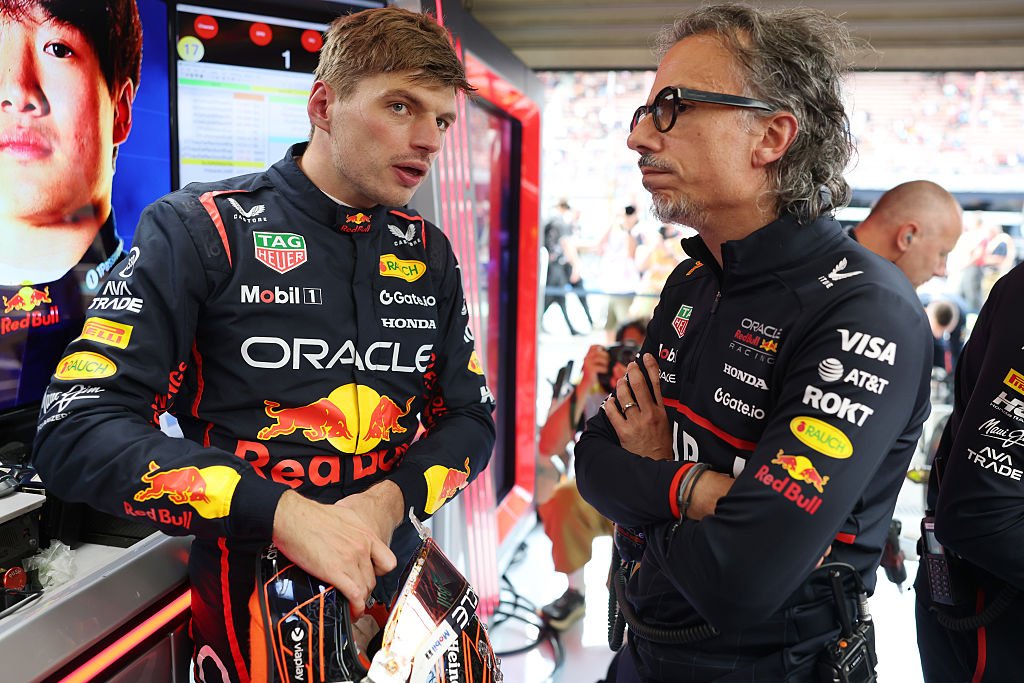Max Verstappen’s Commitment to Red Bull at the Belgian Grand Prix
Max Verstappen recently demonstrated his unwavering dedication to the Red Bull Racing team by clinching victory in the Sprint event at the Belgian Grand Prix. This marked a significant moment for the team, as it was their first race weekend without Christian Horner serving as team principal. Verstappen’s performance not only highlighted his driving skills but also underscored his loyalty and commitment to the team’s success.
A Strong Start Without Christian Horner
The weekend commenced on a high note for Red Bull, as Verstappen managed to overtake Oscar Piastri during the Sprint race, securing a commendable victory. This early success was especially noteworthy given the backdrop of leadership changes within the team. Following Horner’s departure, Verstappen’s performance sent a clear message: his commitment to Red Bull remains steadfast, regardless of who leads the team.
Verstappen expressed his sentiments post-race, stating, “The team can always count on me. They will always get my very best, whoever is in charge.” His words reflect a deep-seated loyalty to Red Bull and a determination to deliver top-notch results. He emphasized that he is always striving to provide the best possible outcomes, highlighting the professional expectations that come with his role.
Positive Energy in the Team
The atmosphere within the team has been largely positive since the transition in leadership. Verstappen noted, “It’s very difficult to, within two weeks, suddenly say a lot of things need to change out of the blue.” This acknowledgment speaks to the need for continuity and stability in a high-pressure environment like Formula 1, where rapid changes can lead to uncertainty.
Verstappen recognized that building relationships is crucial for any team. He mentioned that understanding how everyone operates is the first step toward fostering a productive working environment. He expressed optimism about the new team principal, Laurent Mekies, noting his keen motivation and eagerness to succeed. “I got on very well with him. It’s been a very good start,” Verstappen remarked, indicating a promising collaboration ahead.
Qualifying Performance and Challenges
Despite the successful Sprint race, Verstappen faced challenges during the qualifying session for the main Grand Prix. He ended up fourth after a mistake on his final lap, a result that fell short of his expectations. Verstappen’s analysis of his qualifying performance revealed that he believed there was more potential to be unlocked. His goal was to improve his position and contend for a podium finish in the race.
Reflecting on his qualifying laps, Verstappen stated, “Q3 wasn’t very good for whatever reason.” He detailed how the first set of tires did not provide the grip he needed, impacting his overall performance. Such insights into the technical aspects of racing provide fans and analysts with a deeper understanding of the challenges drivers face on the track.
Looking Ahead to the Race
As the race day approached, Verstappen remained focused on his goal of securing at least a third-place finish. He acknowledged the competitiveness of his rivals, particularly the McLaren team, which has shown strong performance in both wet and dry conditions. Verstappen’s strategic mindset is evident as he prepares to tackle the challenges ahead.
The Belgian Grand Prix is known for its unpredictable weather, often adding an extra layer of complexity to the race. Verstappen’s awareness of the conditions and how they can affect tire performance is crucial for his race strategy. He stated, “Normally [I’m not able to fight in the wet], because McLaren is even stronger in the wet than in the dry.” This recognition of his competitors’ strengths showcases his analytical approach to racing.
The Importance of Team Dynamics
The dynamics within a racing team can significantly influence performance on the track. Verstappen’s comments about team cohesion are vital in understanding how effective communication and collaboration can lead to improved results. The transition in leadership at Red Bull presents both challenges and opportunities, and Verstappen’s ability to adapt is essential for maintaining the team’s competitive edge.
Verstappen’s commitment to Red Bull goes beyond personal achievements; it reflects a broader understanding of how individual performance contributes to the team’s success as a whole. His leadership qualities and ability to inspire those around him are key components that can help steer the team through this transitional phase.
Conclusion
Max Verstappen’s recent performances at the Belgian Grand Prix exemplify his dedication to Red Bull Racing. His ability to secure a victory in the Sprint event, coupled with his insights into the challenges of qualifying, highlights his role as a leader within the team. As Red Bull navigates a new era without Christian Horner, Verstappen’s commitment and positive energy will undoubtedly play a crucial role in shaping the future of the team.
In an environment where every detail matters, Verstappen’s focus on building relationships and understanding team dynamics will be instrumental as Red Bull looks to continue its pursuit of excellence in Formula 1.
